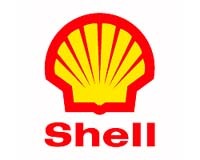Shell Opens Los Angeles' First Combined Hydrogen and Gasoline Station
 |
HOUSTON, June 26 -- Shell Hydrogen LLC, today, announced the opening of California's first hydrogen refueling station on a conventional Shell gasoline forecourt in West Los Angeles (LA).
Located on Santa Monica Boulevard and Federal Avenue (near I-405) the station joins California's 'hydrogen highway', and gives consumers a taste of the future, with refueling services for hydrogen powered fuel cell vehicles becoming just as convenient as conventional gasoline motors.
In hydrogen vehicles, an electric motor powers the wheels. A chemical reaction inside a unit called a fuel cell -- usually between hydrogen and oxygen -- creates electricity for the motor.
The only tail pipe emission is water vapor, which produces zero carbon emissions and has the potential to significantly reduce air pollutants and greenhouse gas emissions, improve air quality, and protect against climate change.
California already has more fuel cell vehicles (FCVs) and hydrogen refueling stations than any other part of the world, and last year recorded 1.5 million zero emission miles from hydrogen FCV trials. Twenty-five hydrogen stations currently operate in California, most in the San Francisco-Sacramento corridor and the Greater Los Angeles and San Diego regions, serving more than 100 fuel cell passenger vehicles and transit buses, with a further ten stations already in the planning stages.
Hydrogen production at the Shell station will be done on-site by the electrolysis of water using 'green electricity'(1) purchased from the Los Angeles City Department of Water & Power. It will then be compressed and stored to provide daily fueling.
The station will also support a U.S. Department of Energy hydrogen infrastructure program, to supply hydrogen to future and existing General Motors FCVs in the LA metro area. GM plans to lease more than thirty Chevrolet Equinox Fuel Cell-Electric compact SUVs to private and commercial customers in Southern California, as part of a three-year trial, called "Project Driveaway" to test the vehicles in real world driving conditions.
Officiating at the launch, City of Los Angeles Councilman Bill Rosendahl said, "California has made significant progress demonstrating fuel cell vehicle technology and fuel alternatives, but this still requires much more progress by vehicle and infrastructure providers and the state. However, I am delighted that today, with support from Shell, we are able to continue to grow a safe and secure hydrogen infrastructure, that enables fuel cell vehicles to refuel more conveniently, as we move towards the future commercialisation of clean transportation technology."
With the US one of the largest automotive markets in the world, with over 247 million vehicles on its roads(2), car ownership predicted to increase by 45% between 2005 and 20203, and US energy consumption set to rise to 139.9 quadrillion Btu by 20154, hydrogen FCVs are set to play an important part in the United States' growing energy and mobility needs.
In addition to zero tailpipe emissions, finding ways to produce hydrogen from renewable sources will be critically important to making the fuel infrastructure sustainable. And with ground breaking approaches to produce 'green hydrogen', manufactured from renewable energy sources, such as bioethanol (derived from biomass) and solar energy being researched for the future, 'well to wheel' emissions will be able to near zero.
Hydrogen can also be produced from a number of different feedstocks including oil, coal, and biomass. This allows different countries to manufacture hydrogen with their own domestic supplies, and at the same time reduce costs and increase security of supply.
Graeme Sweeney, Executive Vice President for Shell Future Fuels and CO2 said: "California is leading the way with clean fuels, as it moves one step closer to realizing its hydrogen program, FCVs powered by hydrogen will provide a sustainable transportation choice for the future, opening up new markets across the globe. This requires the sustained effort of energy companies, auto manufacturers and federal and state governments working together. We are pleased to be playing our part to help develop a safe and reliable fueling infrastructure for future clean energy vehicles, as the only major energy company involved in FCV vehicle demonstrations in all three major hydrogen markets -- North America, Japan, and Europe."
James J. Provenzano, President of the 40 year-old public advocacy group Clean Air Now added: "This is a very exciting development. With this station, Shell is helping to usher in the hydrogen age. We are very pleased to be working with a large oil company to demonstrate zero-pollution transportation technologies. Hats off to Shell for implementing innovative solutions to mitigate air pollution right here in Los Angeles."
'Shell Hydrogen' refers to the companies of the Shell Group of companies that are engaged in the pursuit and development of businesses related to hydrogen and fuel cells. Each of the companies that make up the Shell Group of companies is a separate and distinct legal entity. Principal offices of Shell Hydrogen are located in The Hague, the Netherlands, with regional bases in Houston and Tokyo. Shell Hydrogen has been developing hydrogen and fuel cell businesses since 1999.


